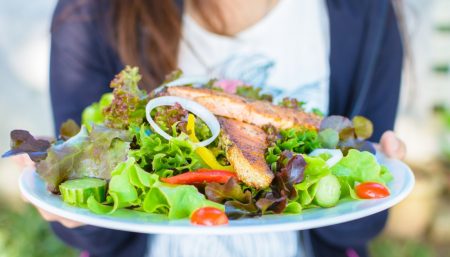After you have successfully undergone IVF treatment and the last step of your IVF, which is embryo transfer, has been successfully performed, then there is something else you can do to increase the effectiveness of embryo implantation instead of just sitting there and waiting for it. To Happen To achieve success in IVF, there are certain guidelines that must be followed that include incorporating a healthy diet.
If you are looking for what to eat after IVF embryo transfer, we have mentioned some of the best foods enriched with healthy nutrients that will help effective embryo implantation. In addition to paying attention to your diet, you should also adopt a healthy lifestyle along with giving up bad habits and starting training. What we eat on a daily basis affects our overall health and eating bad things will not be helpful, especially when you are at the crucial stage of IVF embryo implantation.
It is important to receive a consultation from your fertility doctor about what to eat after the embryo transfer and to make any necessary and timely changes as prescribed by your doctor. The recommendations listed below are made after extensive research and suggestions from top-notch fertility specialists, so you may want to try this as well before consulting a fertility expert.
Foods to eat after IVF embryo transfer
To increase the chances of embryo implantation, you should reduce your sugar intake and try whole grains. The diet is quite similar to the diet of a woman who has naturally reached pregnancy. You should consider eating green leafy vegetables, broccoli, sprouts, to try protein, eggs, yogurt, fish, beans, nuts, and fiber for oatmeal and other whole grains. The idea is to eat foods full of protein, high fiber content, folic acid, omega-3 fatty acids, etc.
You are supposed to follow a pregnant woman’s diet that requires eating a large number of fruits and vegetables. Discover foods enriched with protein, fiber, and carbohydrates. Also, take other essential vitamins and minerals. But don’t try too hard and eat everything in an adequate quantity. The type of food you eat affects the chances of healthy embryonic implantation, but there are also other things to consider, such as your lifestyle.
Get into a regular, less intense exercise routine if you can properly maintain blood circulation in your body. Do not try to exercise vigorously as this can cause serious damage to your reproductive organs. The importance of staying hydrated can never be avoided, so drink plenty of water for at least two liters a day to maintain a healthy environment within your body. Also, rest in bed, but you can continue your daily chores, as complete rest is not suggested at this stage.
Foods to avoid after IVF embryo transfer
If you are eating everything right and you are also eating what is not right, then the effect of evil can dominate good. Therefore, it is best that you avoid smoking or drinking, especially at this time. Chances are you stopped smoking or other addictive habits before your IVF started, but you still have them, so it’s better to quit now because it can negatively affect embryo implantation. Finding out what not to eat is as important as what to eat after IVF embryo transfer.
In addition to giving up alcohol, other drinks, or drinks with high sugar content should be given up at this time. Also, avoid eating junk food or try drinking homemade juices that are fresh and pure. From a general point of view, these things are bad for health and are even worse when undergoing IVF. Strictly follow the medication plan provided by your doctor and stay updated with other changes that will be incorporated into your medication plan.
Follow Us

Add Your Comment